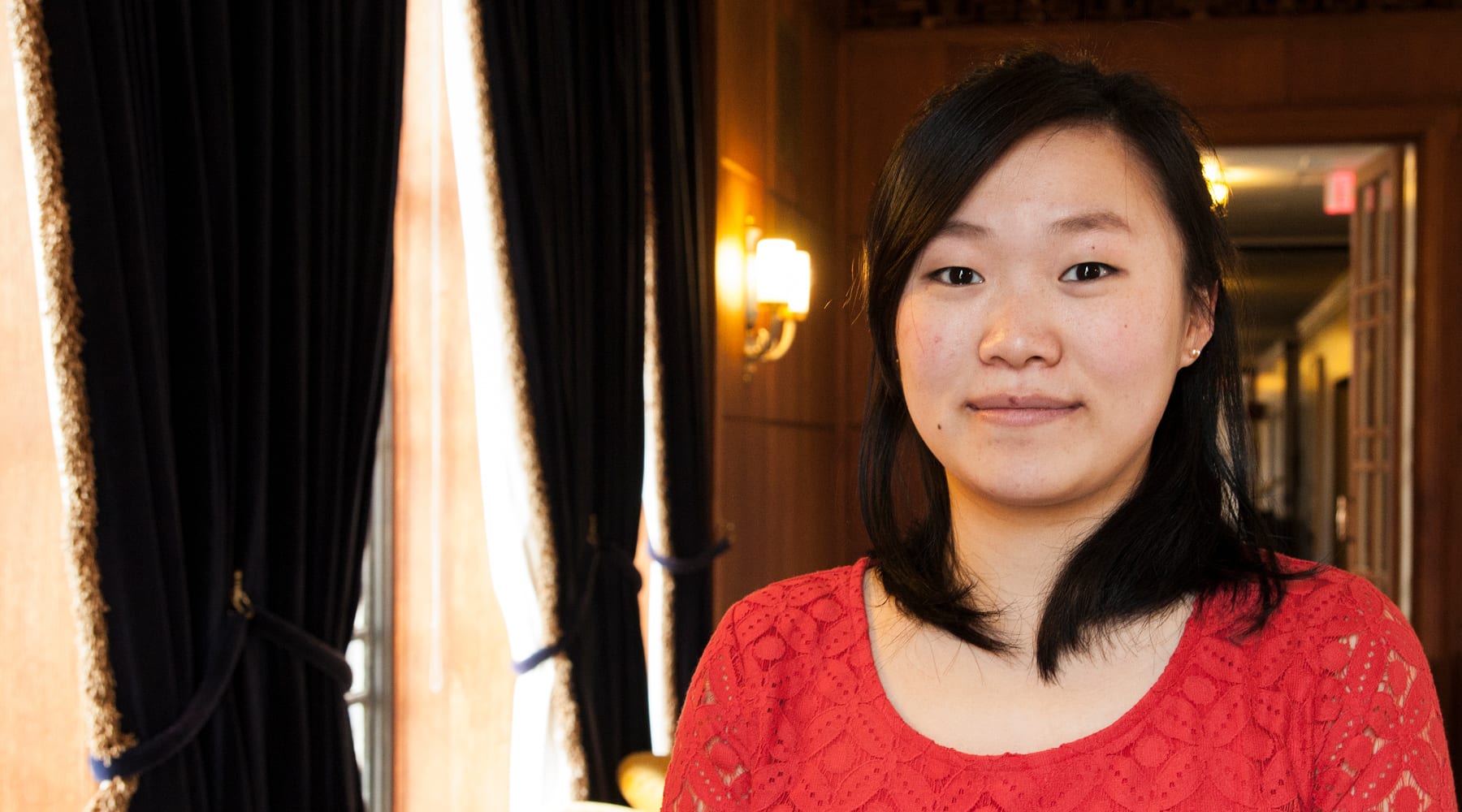
Yilan Zhang
“U.S. bridges were designed to serve for 50 years. Most of them were built 50-60 years ago.”
Uh oh.
Since many of the bridges are passing their useable service time, Yilan’s research on how we can effectively monitor the structural health of bridges is particularly important. “Our department studies a variety of issues around this subject, but my project features long-term instrumentation, using wireless nodes with sensors to collect bridge data and extracting information from collected data using cyber-infrastructure.
“We utilize two test bridges – a suspension bridge in California and a highway overpass in Michigan. I have sensors on the suspension bridge to assist the decision making process, determine if the bridge is safe to use after earthquake. Every day I get data from the bridge that I’m using to build a data management system to share with different researchers. We send the information to post data processors to determine the risk of bridge failure as well. This leads to more comprehensive analysis of the data and structure of the bridge.” Ultimately, she’d like sensors to be on every bridge.
Describing her field, she says, “Our lab focuses on civil infrastructure system work, using creativity and technology to push forward.”
Yilan came to U-M for her junior year as an undergraduate student in the University of Michigan-Shanghai Jiao Tong University Joint Institute. She didn’t waste any time, saying, “I started research early, doing independent study work. I looked up a professor online, contacted him and got involved with his lab.” He later became her faculty mentor as a graduate student. She attributes her smooth student experience to being well funded and starting her project early. “I’ve had a mixture of funding to make it all work,” she says. As a current Barbour Scholar, she receives full support for the entire coming year.
“Still, there is a lot of pressure as a new grad student. Everyone comes in as a straight-A student – it is a level playing field. That takes some getting used to. As an undergrad, I lived on Central Campus, played a lot, my coursework was not as heavy and I didn’t have pressure to do research. Grad school is a new routine – going to the office every day, moving close to the lab where I spend most of my time.”
What the future holds for her is a reflection of her journey. Yilan explains, “The Joint Institute has been a great experience. I want to replicate it for others.” While joining a Chinese university as a faculty member is her short-term goal, she hopes to establish another China-based joint institute between Chinese and American engineering schools.
